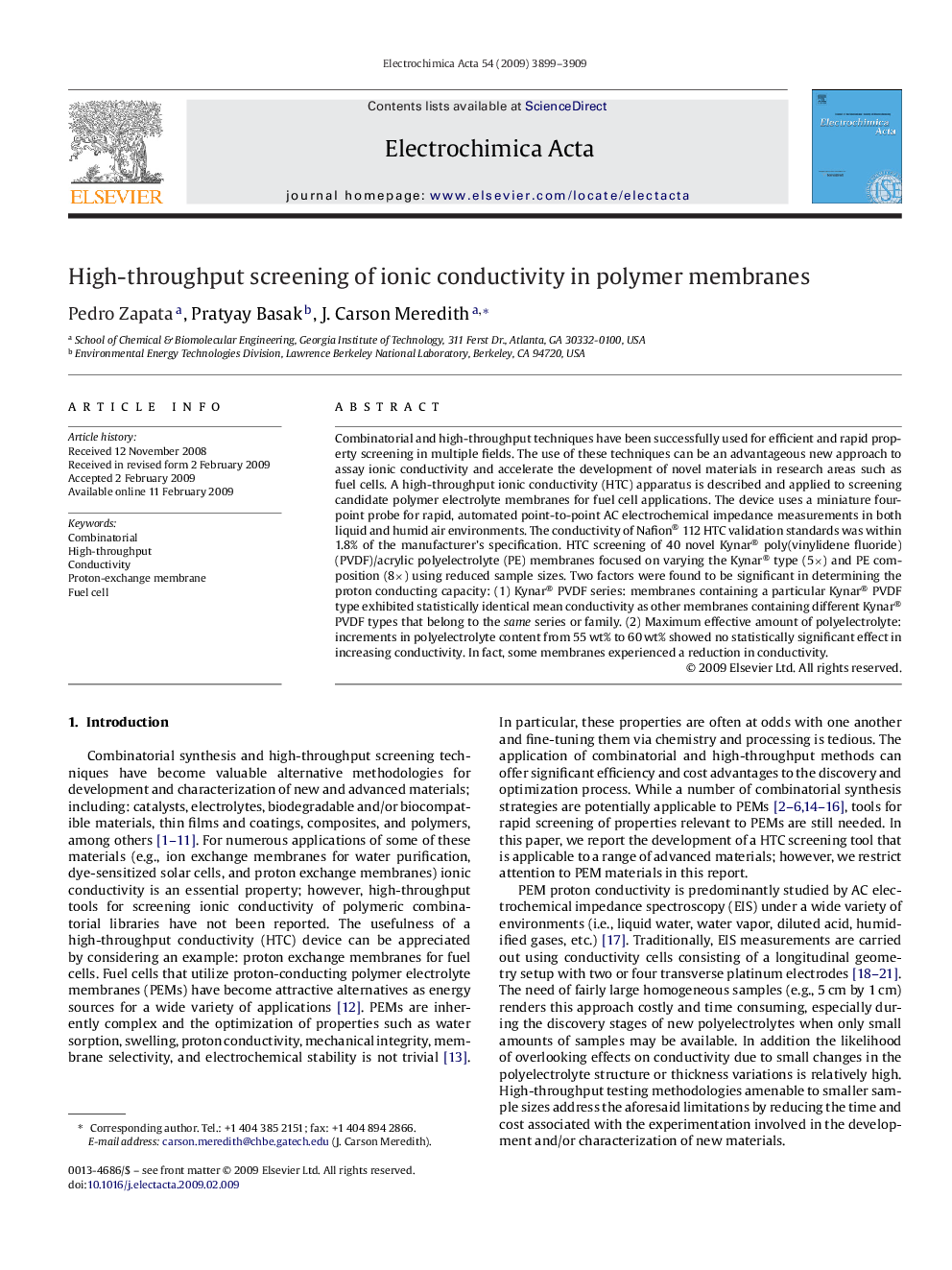| Article ID | Journal | Published Year | Pages | File Type |
|---|---|---|---|---|
| 193815 | Electrochimica Acta | 2009 | 11 Pages |
Combinatorial and high-throughput techniques have been successfully used for efficient and rapid property screening in multiple fields. The use of these techniques can be an advantageous new approach to assay ionic conductivity and accelerate the development of novel materials in research areas such as fuel cells. A high-throughput ionic conductivity (HTC) apparatus is described and applied to screening candidate polymer electrolyte membranes for fuel cell applications. The device uses a miniature four-point probe for rapid, automated point-to-point AC electrochemical impedance measurements in both liquid and humid air environments. The conductivity of Nafion® 112 HTC validation standards was within 1.8% of the manufacturer's specification. HTC screening of 40 novel Kynar® poly(vinylidene fluoride) (PVDF)/acrylic polyelectrolyte (PE) membranes focused on varying the Kynar® type (5×) and PE composition (8×) using reduced sample sizes. Two factors were found to be significant in determining the proton conducting capacity: (1) Kynar® PVDF series: membranes containing a particular Kynar® PVDF type exhibited statistically identical mean conductivity as other membranes containing different Kynar® PVDF types that belong to the same series or family. (2) Maximum effective amount of polyelectrolyte: increments in polyelectrolyte content from 55 wt% to 60 wt% showed no statistically significant effect in increasing conductivity. In fact, some membranes experienced a reduction in conductivity.
